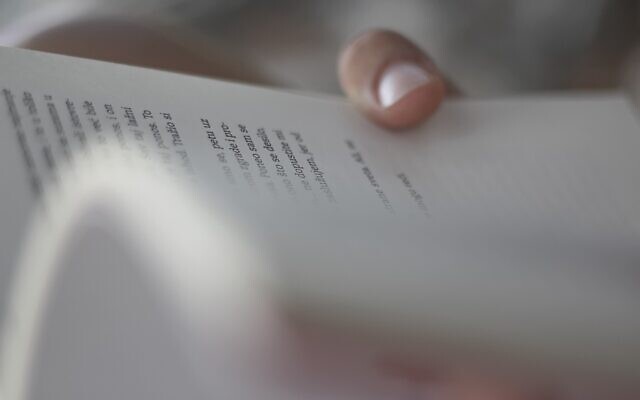Two GCSE textbooks on Middle East withdrawn after complaints by Palestine group
British Committee for the Universities of Palestine claimed Pearson's material downplayed Arab suffering after 294 revisions by Jewish community groups
Lee Harpin is the Jewish News's political editor
Textbooks for a GCSE history option on the Israeli and Palestinian conflict have been withdrawn again over claims they downplay Arab suffering.
Two books published by Pearson, the education company that owns the Edexcel exam board, have been withdrawn following complaints from the British Committee for the Universities of Palestine (Bricup).
The organisation complained that 294 revisions made to the text in the original books, following interventions by the Board of Deputies and UK Lawyers For Israel, favour the Israeli point of view.
The revised books – Conflict in the Middle East c1945-1995 for GCSE, published in 2016, and The Middle East: Conflict, Crisis and Change 1917-2012, published in 2017 – had been reissued briefly last year.
Bricup, say they worked with John Chalcraft, a professor of Middle East history and politics at the London School of Economics, and James Dickins, a professor of Arabic at the University of Leeds, to compare the revised version of the books with the originals.
In their report they claim: “The revisions have consistently underplayed and explained Jewish and Israeli violence, while amplifying and leaving unexplained Arab and Palestinian violence.
“They have extended or left intact accounts of Jewish and Israeli suffering, while downplaying and editing accounts of Arab and Palestinian suffering.”
After earlier interventions by the Board and UKLFI the books were taken off the shelves while they engaged with Pearson over changes.
UKLFI objected in one instance to the book’s description of the Deir Yassin tragedy in 1948 as “one of the worst atrocities of the war” and the omission of the “massive improvement” in the living standards of Palestinians on the West Bank and Gaza Strip under Israeli rule.
But some now fear the dispute over bias in the books could lead to the subject disappearing from school curriculums.
Michael Davies, a former history teacher and founder of Parallel Histories, an organisation that provides material for students to understand conflicts from different sides told the Guardian: “Teachers don’t want to teach it and not because it’s not interesting, but because they are scared about being accused of bias.
“The other exam boards had already departed the scene and so Pearson, although getting pilloried over changes to the books, are the good guys here.”
Education Secretary Gavin Williamson issued a further warning to schools last week about the need to teach the Middle East conflict in an unbiased manner.

Thank you for helping to make Jewish News the leading source of news and opinion for the UK Jewish community. Today we're asking for your invaluable help to continue putting our community first in everything we do.
For as little as £5 a month you can help sustain the vital work we do in celebrating and standing up for Jewish life in Britain.
Jewish News holds our community together and keeps us connected. Like a synagogue, it’s where people turn to feel part of something bigger. It also proudly shows the rest of Britain the vibrancy and rich culture of modern Jewish life.
You can make a quick and easy one-off or monthly contribution of £5, £10, £20 or any other sum you’re comfortable with.
100% of your donation will help us continue celebrating our community, in all its dynamic diversity...
Engaging
Being a community platform means so much more than producing a newspaper and website. One of our proudest roles is media partnering with our invaluable charities to amplify the outstanding work they do to help us all.
Celebrating
There’s no shortage of oys in the world but Jewish News takes every opportunity to celebrate the joys too, through projects like Night of Heroes, 40 Under 40 and other compelling countdowns that make the community kvell with pride.
Pioneering
In the first collaboration between media outlets from different faiths, Jewish News worked with British Muslim TV and Church Times to produce a list of young activists leading the way on interfaith understanding.
Campaigning
Royal Mail issued a stamp honouring Holocaust hero Sir Nicholas Winton after a Jewish News campaign attracted more than 100,000 backers. Jewish Newsalso produces special editions of the paper highlighting pressing issues including mental health and Holocaust remembrance.
Easy access
In an age when news is readily accessible, Jewish News provides high-quality content free online and offline, removing any financial barriers to connecting people.
Voice of our community to wider society
The Jewish News team regularly appears on TV, radio and on the pages of the national press to comment on stories about the Jewish community. Easy access to the paper on the streets of London also means Jewish News provides an invaluable window into the community for the country at large.
We hope you agree all this is worth preserving.






















